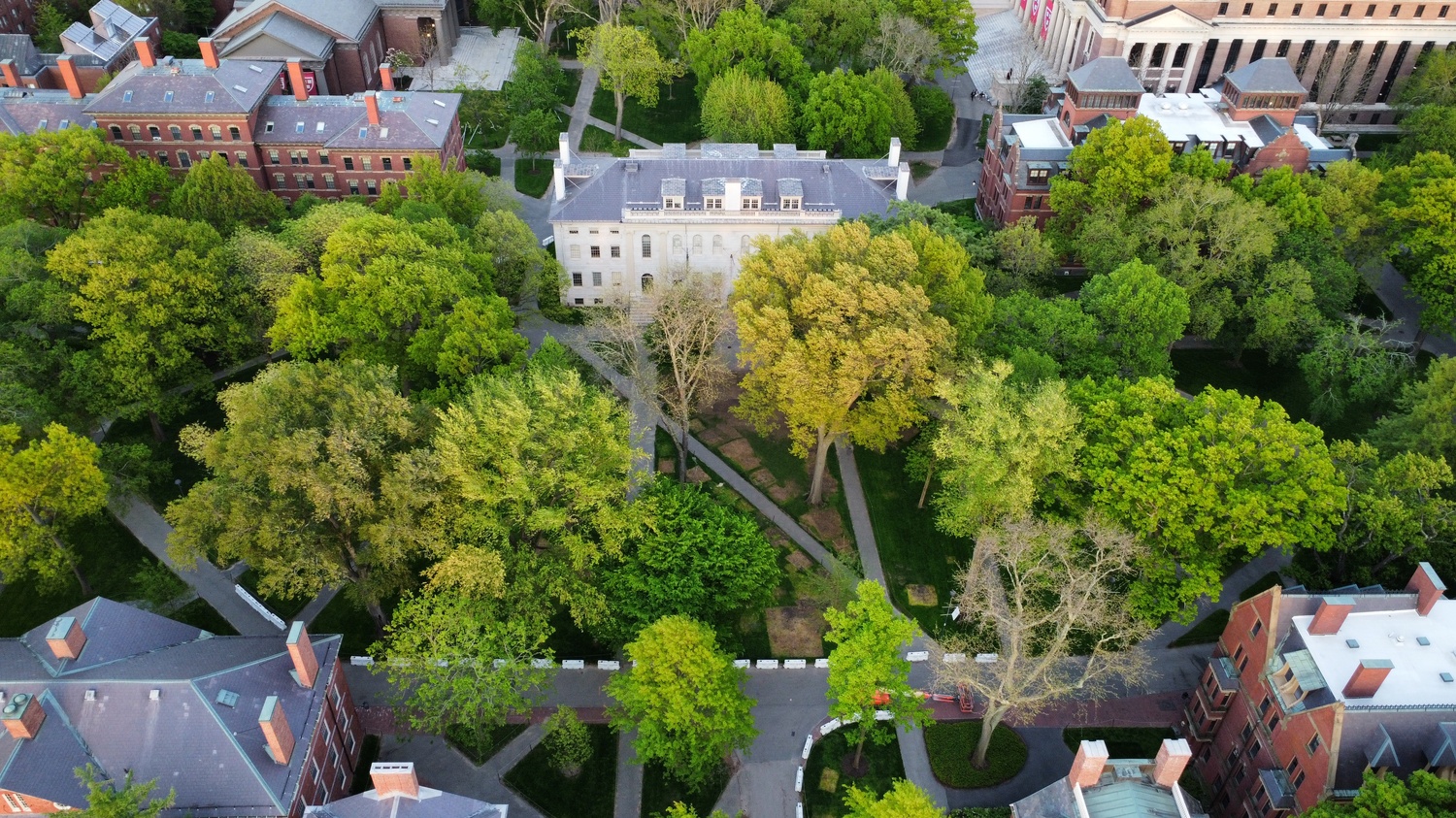
News
Summers Will Not Finish Semester of Teaching as Harvard Investigates Epstein Ties

News
Harvard College Students Report Favoring Divestment from Israel in HUA Survey

News
‘He Should Resign’: Harvard Undergrads Take Hard Line Against Summers Over Epstein Scandal

News
Harvard To Launch New Investigation Into Epstein’s Ties to Summers, Other University Affiliates

News
Harvard Students To Vote on Divestment From Israel in Inaugural HUA Election Survey
Harvard Barred Me From Graduating. This Week, They Gave Me Hope.

Last May, Harvard barred me from graduation for my participation in a peaceful protest. So when I received two recent University-wide emails about Harvard’s response to the Trump administration, I approached the messages with trepidation and cynicism.
After reading them, I found myself unexpectedly hopeful instead.
Harvard’s recent showdown with the federal government marks a turning point — the University is finally listening to at least some of what its students and faculty have been saying. Here, I see an opportunity for Harvard to reckon with itself.
Let me make my position clear. I am writing this op-ed because, having been very vocally critical of Harvard in the past, I believe it’s important to acknowledge when the University does something right. But I do not believe that Harvard has suddenly become a bastion of free speech and moral integrity.
I am one of the thirteen students who were barred from graduating due to our participation in the non-violent Harvard Yard encampment. This punishment was an unprecedented act of repression, which Harvard enacted without looming financial threats from the government. I am well aware of the ways Harvard is already carrying out in practice what the Trump administration demanded in writing.
Since Oct. 7 2023, Harvard has consistently responded to external pressure by targeting and censuring those who would protest what several human rights organizations have called a genocidal endeavor in Gaza.
It stripped recognition from the Harvard Undergraduate Palestine Solidarity Committee for nonviolent demonstrations, and put them on probation again this spring. It suspended students for camping in Harvard Yard, despite previous activist encampments proceeding without similarly harsh punishments. It adopted a definition of antisemitism that would prohibit certain fundamental criticisms of Israel. It cancelled academic programs that included Palestinian perspectives, and suspended ties with one of the West Bank’s top universities.
In its lawsuit against the Trump administration, Harvard boasts about all it has done to combat antisemitism, citing actions like the above as positive examples.
Of course, it’s good that Harvard did not agree to the Trump administration’s new demands. They are ludicrous. They include subjecting faculty to government oversight of their ideological viewpoints, dismantling all Diversity, Equity, and Inclusion programming, derecognizing the National Lawyers Guild student group on campus and disciplining all of its members, and, most bizarrely, immediately suspending or possibly expelling any student who wears a face mask.
But why did federal agents apparently believe that Harvard would accept these outlandish conditions? How could anyone sincerely ask Harvard to suspend students for wearing Covid masks and expect the University to comply?
The answer is that authoritarianism begets authoritarianism.
Harvard had already shown itself willing to harshly punish discomfort-inducing protest, or to dissolve politically inconvenient academic programming. If that was acceptable, federal officials may have figured: Why not see how far Harvard will go?
But Harvard did not agree. This fact is vitally important, because it demonstrates that there are still lines the Trump administration cannot cross.
Additionally, it may have clarified the stakes of this fight for some. For example, former University President Lawrence H. Summers, who has supported Harvard’s recent crackdowns on speech and even urged the University to go further, nevertheless applauded Harvard’s recent resistance to Trump. Perhaps now Summers, and others like him who have advocated ideological repression at Harvard for years, can realize where their own recommendations have led and reverse course.
In his April 14th email, University President Alan M. Garber ’76 points out that while combating antisemitism is a worthy goal, many of the government’s demands have nothing whatsoever to do with antisemitism. It was an immense relief to hear someone in authority at Harvard acknowledge this. Those of us organizing against Israel’s genocidal campaign in Gaza have long understood that the Republican Party’s recent crusade against college antisemitism is not being carried out in good faith. Clearly, dismantling DEI programming and banning masks do nothing to combat antisemitism.
Resisting the Trump administration, on the other hand, is a more logical step. In 2017, Donald Trump famously declared that there were “very fine people” at a right-wing demonstration which featured swastika banners and anti-Jewish chants. By 2022, he apparently embraced the antisemitic conspiracy theory QAnon. Today, his right-hand man, Elon Musk, allows hate speech to run rampant on X.
If Harvard wants to eliminate both antisemitic and anti-Palestinian bias, its best bet is refusing to allow this administration to control it.
In the coming months, Harvard could take this battle with the Trump administration as an opportunity to reflect on what the University stands for. There is much work still to do for Harvard to stand by its principles. But the University has at least now demonstrated that it still has principles.
That gives us a place to start.
Phoebe G. Barr graduated from the College in July of 2024.
Want to keep up with breaking news? Subscribe to our email newsletter.
